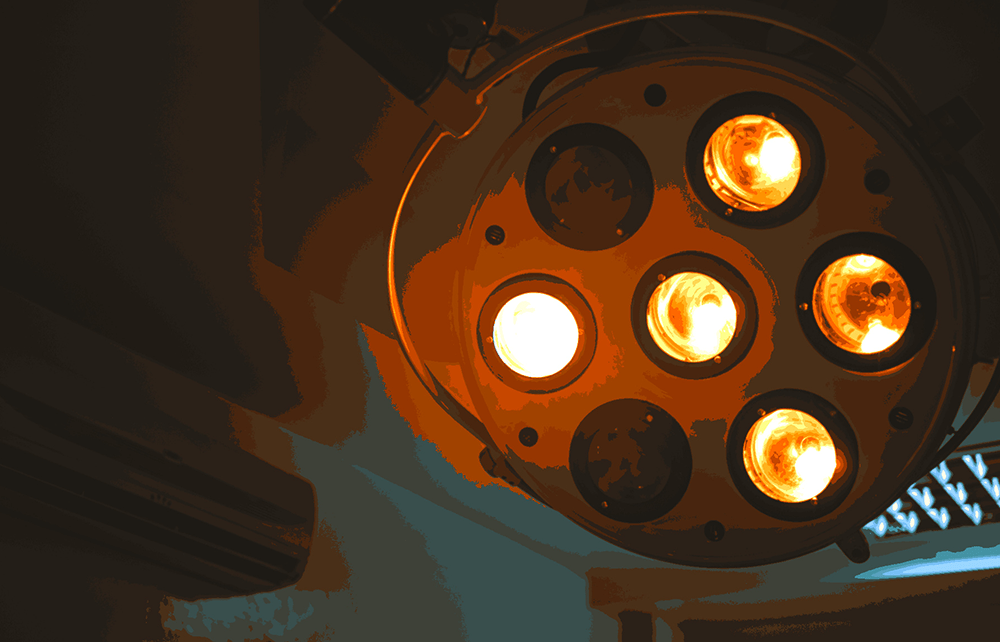For many readers, my absence from these pages may have gone unnoticed. Those few who’ve detected my disappearance might have idly concocted theories: maybe Shriver crossed a line in her opposition to uncontrolled illegal immigration such that she finally got the sack. The explanation is more quotidian.
Six years ago, I was diagnosed with the unwieldy sounding spondylolisthesis: a vertebra in my lower spine had moved out of alignment, squeezing the nerves to my right hip and leg. I’d been managing, but the situation was degenerative. By this summer, I could barely complete a 15-minute walk, and – the limit – I could not play tennis. Already in NYC, International Healthcare Central, on 7 August I submitted to major back surgery (L4/L5 fusion with instrumentation and decompression, if we’re going to be fancy).
My husband thought I was dying. He may not have been wrong
I’d been dreading this operation. Everyone I’d consulted had counselled ‘Whatever you do, don’t get back surgery!’, and they’d all promoted pet, often goofball alternative therapies, none of which would put my errant bone back where it belonged. Vain on the fitness front, I was loath to squander weeks of recuperation on stupid little walks while my neglected press-ups and sit-ups degenerated. Maintaining muscle in your sixties is totally doable; building muscle in your sixties is nearly impossible. Yet in retrospect, I didn’t dread the operation nearly enough.
When I emerged from anaesthesia, the surgical team reported all had gone well, though after getting into the nitty-gritty they were astonished by how much pain I must have routinely been enduring. Fancying myself as hardy, I took the observation as a compliment. Yet once the anaesthesia wore off back home in Brooklyn, any preening about my impressively high pain threshold didn’t last five minutes. An initial warning that recovery from back surgery is ferociously painful had remained abstract, and as we corporeal sorts should know, pain is anything but abstract.
I’m still unsure whether my pharmaceutical regime was poorly managed or if virtually nonstop and accelerating agony is the form for any back surgery patient, and rather than ‘hardy’ I am a hopeless wuss. But my suffering grew only more intense. I’ve no understanding why anyone would get addicted to oxycodone, which exhibited no euphoric qualities whatsoever. Worse, the meds took longer and longer to kick in and lasted a shorter and shorter time when they did, so I’d anguish through a good 90 minutes with no pain relief between dosages. I got no sleep, while my churning up the bedclothes, clawing the sheets and ineffectual whimpering exiled my poor husband to the couch downstairs.
On day nine, when I crawled from bed, my hands and feet were tingling and numb. I was unstable, once again needing a walker for my sad little shambles across the living room, and I felt faint. Between the ongoing pain and vertiginous weakness, I ended up in the emergency room two nights out of three. Thereafter, the hospital where I’d got the surgery readmitted me.
Over the following week, I lost the ability to walk. If I tried to stand up, I collapsed. This condemned me to a bedside commode. Meanwhile I got MRIs and blood tests up the wazoo, but none of the results were determinative. No one knew what was wrong with me.
Finally my surgical team decided that if they couldn’t find anything wrong with me, there was nothing wrong with me. These physicians suddenly cooled in my presence, keeping an emotional distance as if whatever I had was catching. I was informed that I was mentally ill. My physical failings were all in my head. This wasn’t a mental health facility, so they were discharging me. Later my husband discovered in my notes that the team also suspected I had problems with substance abuse. These conclusions were based on nothing. I’d no history of addiction or mental instability. But they wished to wash their hands of me.
I was discharged to a shabby rehab facility in Brooklyn. Given my inability to bear my own weight, the nurses there cling-filmed me into nappies, because they didn’t want to spare the staff to escort me to the toilet. This was subsequently reported chidingly to my surgical team as Shriver having become ‘incontinent’ since arrival. Picture yourself swaddled in cellophane like a tuna sandwich; over time you have no choice but to be ‘incontinent’, lest you explode. To spare me this humiliation, my brother, flown in from Iowa, and my husband traded off 12-hour shifts sleeping in chairs in my room so that they could carry me to the toilet. No longer able to eat, I was evaporating. My husband thought I was dying. He may not have been wrong.
Mercifully, I was booked for one last nerve test. The administering physician didn’t think I was crazy. And she had a diagnosis at which my googling husband, brother and a friend had all arrived weeks earlier: Guillain-Barré syndrome, triggered by the surgery. She rushed me to another hospital, where they immediately began administering immunoglobulin treatments. I remained in that hospital for two more weeks.
You may recognise GBS as a lesser-known side-effect of certain Covid vaccines. GBS was also such a commonplace side-effect that a swine flu vaccine was withdrawn from the market. That’s because nobody wants Guillain-Barré syndrome, and now I know why.
I’m expected to recover, though normalcy could take up to two years. Thanks to an autoimmune disorder whereby the body attacks its own nervous system, I’m weak as a newborn baby. I can’t even open a can of Sprite. Alas, this humbling bad luck hasn’t improved my character.
My sole takeaway is gratitude for my brother’s and husband’s unstinting kindness. I wouldn’t wish this condition on my bête noire (even Kamala Harris!). But I would hope anyone who suffers such a tragedy to have family members who express their devotion in the most tangible way possible: bundling you to the toilet, dragging your shorts to your knees, tugging them back over your shrivelling bum and embracing you back to bed. That’s real love.








Comments